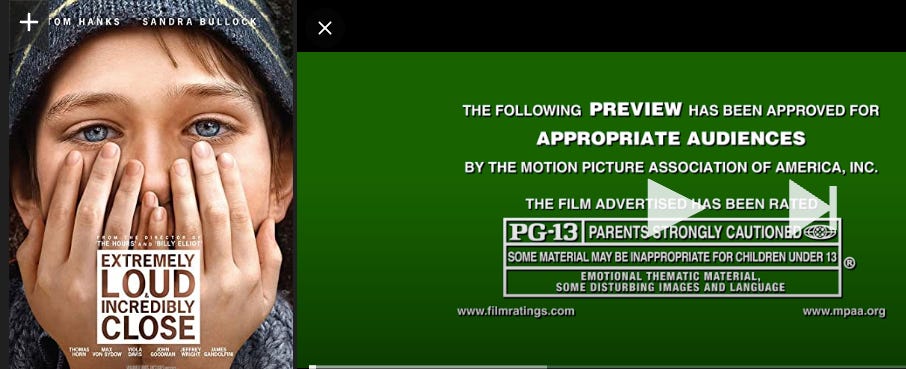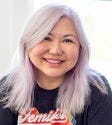“Marlon Bundo” never stood a chance.
The picture book satirizing Mike Pence’s pet bunny — and with it, the vice president’s opposition to gay marriage — was likely dead on arrival with Florida’s book-ban advocates the moment HBO talk show host John Oliver gleefully promoted it.
The bunny in question is gay. That puts it under state law barring “instruction on sexual orientation or gender identity” in kindergarten through third grade.
But dozens of classics, biographies and very young readers’ picture books either banned or targeted for scrutiny by school districts had nothing to do with LGBTQ+ issues or sex at all, a Stet analysis found. They were told through the voices of Black, Hispanic, Asian, Native American, Jewish and Muslim children or families.
“I want everyone to be alarmed,” said Ellen Oh, an award-winning author of young adult and middle grade novels and CEO of the nonprofit We Need Diverse Books. “At the heart of this is a desire to take away the ability to read about and empathize with people.
“‘Dim Sum for Everyone’ is not grooming.”
Certain titles for teenagers, such as “The Absolutely True Diary of a Part-Time Indian,” include brief, but graphic, sex scenes. That might explain challenges to the book based on the state’s prohibition on books “intended to cause sexual excitement.” Under new state rules, that includes any students, not just those in K-3.
But it does not explain why books such as “Barbed Wire Baseball,” an account of the sport in Japanese American internment camps in World War II, or “Chik Chak Shabbat,” a child’s picture book of a special Shabbat meal, warranted special review in Duval.
The rallying cry for groups working to take books off shelves has typically been young children’s exposure to LGBTQ+ individuals or issues, descriptions of sex that they believe meet the definition of pornography, or books that could make someone feel bad based on their race or heritage.
Parents and advocacy groups have filed formal challenges to individual books with school districts around the state based on those general criteria.
However, school districts have flexibility in deciding whether books should be reviewed or removed. So, while, the child's picture book “Everywhere Babies” might have passed muster in much of Florida, it was red-flagged for review in Indian River, according to PEN America, the national reading advocacy nonprofit. And in Pinellas County, The Tampa Bay Times reports the district removed Toni Morrison’s Pulitzer Prize-winning novel “The Bluest Eye” before any review of the book’s suitability was completed.
“I have stepped back from trying to apply logic” to reasons books are removed, said Kasey Meehan, director of the Freedom to Read project at PEN America. PEN is working with another group, Florida Freedom to Read, to track books either banned or targeted for banning in Florida school districts.
Loyal dogs and curious bears
The racial, ethnic and religious disparities are especially glaring in PEN America’s 2022 list of 121 library picture books designed for very young readers and in some cases, children too young to read. Only about two dozen involved any LGBTQ+ reference, such as “The Purim Superhero,” where two married Jewish fathers tell their children the story of Esther, “who was not afraid to be herself.”
Almost all of the remaining 90 books on the banned or scrutinized children’s picture book list offered stories centered on non-white, non-Christian children and families.
Among the Florida school district books reported banned or under scrutiny in 2022: a story of a Japanese son and his impatient mother. A Korean immigrant whose schoolmates cannot pronounce his name. A girl and her grandmother flying over the streets of New York.
Ethnic pets didn’t fare well, either. “The True Story of Kunkush's Incredible Journey” was under review in Duval County; it’s the story of a girl and her pet fleeing Iraq. Similarly, “A Dog Named Haku,” which takes place during a Buddhist festival in Nepal, came under scrutiny. “Dash,” part of a series on dogs in World War II, centers on a Japanese girl sent to an internment camp. It was one of three books on the internment of Japanese Americans during the war targeted for review.
Further, of 32 banned or targeted biographies and memoirs for older readers, two of every three were of a Black, Asian, Native American, Middle Eastern or Hispanic person.
Among them: U.S. Supreme Court Justice Sonia Sotomayor, legendary athletes Roberto Clemente, Jackie Robinson, Jim Thorpe and Hank Aaron; the Dalai Lama and Nobel Peace Prize winner teenager Malala Yousafzai, whose fight for freedom of education in Pakistan nearly cost her life.
Pocahontas initially didn’t automatically make the cut, either.
“They do not want our voices to be mainstream,” said Oh, a Korean-American. “Something about being published in a book gives our voices more credibility.”

Emptied shelves
Parents frequently do not understand just how broad the bans are, said Stephana Ferrell, research director for Florida Freedom to Read. And confusion and misinformation is rampant.
For instance, one widely circulated list of novels deemed obscene by one group pushing for restrictions included “Fifty Shades of Gray,” a popular adult novel just this side of soft pornography. Ferrell’s group, which continues to survey almost all of Florida’s 67 school districts, has yet to find evidence the book was ever in schools.
Meanwhile, the PEN America list is mushrooming. This time last year, about 409 book titles had been targeted. This year, a newly enacted state rule expanding scrutiny to classroom libraries is expected to swell that number.
Classroom libraries are not textbooks, or library books. They are readers designed to encourage reading for pleasure. In elementary school classrooms, such books can number from dozens to a hundred or more. In January, Manatee and Duval counties rushed to sweep classrooms of the books, or shrouded them, until they could be vetted.
“At some point, it just feels like books are the enemy,” said PEN America’s Meehan. “Any book.”
Like what you see? Tell a friend. Tell your mom. Tell us your ideas for people, places and things deserving of coverage. But mostly, tell us your email so you never miss local stories you aren’t going find anywhere else.








